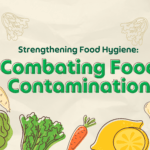In the food industry, product liability insurance is a critical safeguard designed to protect businesses from the financial consequences of claims related to their products. This type of insurance is particularly important for manufacturers, distributors, retailers, and food service providers, as it covers a range of risks associated with the production, sale, and distribution of food products. In this article, we’ll explore the significance of product liability insurance in food insurance, its key features, and how it benefits businesses in the food sector.
What Is Product Liability Insurance?
Product liability insurance provides coverage for businesses in the event that a product they produce, sell, or distribute causes harm to a consumer. This insurance is essential for protecting against claims arising from defective products, contamination, or other issues that could lead to injuries or damages. In the food industry, product liability insurance helps cover the costs associated with legal claims, medical expenses, and other financial losses related to food products.
Why Product Liability Insurance Is Crucial for Food Businesses
- Protects Against Financial Losses
Food businesses are exposed to significant financial risks if their products cause harm or illness. Product liability insurance helps cover the costs of legal defense, settlements, or judgments resulting from product-related claims. Without this coverage, businesses could face substantial financial burdens that threaten their viability. - Addresses Product Defects and Contamination
Food products can be subject to defects or contamination that lead to health issues for consumers. Product liability insurance provides coverage for claims related to defective packaging, improper labeling, contamination, or other issues that could harm consumers. This ensures that businesses can manage the financial impact of such incidents effectively. - Enhances Business Credibility
Having product liability insurance demonstrates a commitment to quality and consumer safety. It can enhance your business’s credibility and reassure customers that you are prepared to address any issues that arise. This can be particularly valuable in building trust and maintaining a positive reputation in the food industry. - Helps Meet Regulatory Requirements
Some jurisdictions and food safety regulations may require businesses to carry product liability insurance as part of their operational standards. Having this insurance in place ensures compliance with these requirements and helps avoid potential legal or regulatory issues.
Key Coverage Areas in Product Liability Insurance for Food Businesses
- Defective Product Claims
Description: Covers claims arising from defects in the food product that cause injury or harm. This includes issues related to the design, manufacturing, or labeling of the product.
Examples:- A food product is found to contain an undeclared allergen, leading to an allergic reaction in a consumer. The insurance covers the costs of legal defense and any compensation claims.
- A batch of food products is contaminated due to a manufacturing defect, causing foodborne illness. Product liability insurance helps cover medical expenses and legal costs associated with the incident.
- Contamination Claims
Description: Provides coverage for claims resulting from contamination of food products, whether caused by bacteria, chemicals, or foreign objects.
Examples:- A customer suffers food poisoning after consuming a contaminated product. Insurance coverage helps with medical expenses and any related legal claims.
- Contamination leads to a product recall, and the business faces legal claims from affected consumers. The insurance covers the costs of the recall and associated legal fees.
- Product Recall Costs
Description: Covers the expenses associated with recalling a defective or contaminated food product from the market, including notification, retrieval, and disposal costs.
Examples:- A food manufacturer discovers a contamination issue and initiates a recall of affected products. Product liability insurance helps cover the costs of notifying customers, retrieving products, and disposing of them properly.
- A retailer needs to recall products due to a labeling error that could mislead consumers. Insurance coverage assists with the recall expenses and any related legal issues.
- Legal Defense and Settlements
Description: Provides coverage for legal defense costs, including attorney fees, court costs, and settlements or judgments resulting from product liability claims.
Examples:- A consumer files a lawsuit alleging injury due to a food product defect. The insurance covers the costs of legal representation and any settlement or judgment awarded to the claimant.
- A food business faces multiple lawsuits related to product contamination. Product liability insurance helps manage the legal defense costs and any financial settlements required.
- Business Interruption Due to Claims
Description: Offers financial support for lost income and ongoing expenses if a product liability claim leads to a temporary shutdown or disruption of business operations.
Examples:- A food business must temporarily close its operations to address a contamination issue and manage the fallout from a product recall. Insurance coverage helps compensate for lost revenue and ongoing expenses during the closure.
- Legal battles and public relations efforts related to a product liability claim impact the business’s ability to operate. The insurance provides financial support to mitigate the impact on the business.
How to Choose the Right Product Liability Insurance Policy
- Evaluate Your Risk Exposure
Assess the specific risks associated with your food business, including the types of products you handle, your production processes, and your potential exposure to liability claims. This assessment will help determine the appropriate coverage limits and policy options. - Compare Insurance Providers
Research different insurance providers and policies to find one that offers comprehensive coverage for product liability risks. Compare coverage limits, exclusions, and any additional endorsements that may be necessary for your business. - Consult with an Insurance Specialist
Work with an insurance specialist who has experience in the food industry. They can provide valuable insights, help you customize your policy, and ensure you have the right coverage for your specific needs. - Review and Update Your Policy Regularly
Regularly review and update your product liability insurance policy to ensure it continues to provide adequate protection as your business evolves. This includes adjusting coverage limits and adding new endorsements as needed.
Conclusion
Product liability insurance is a crucial component of risk management for food businesses, offering protection against the financial impact of claims related to defective products, contamination, and other issues. By covering legal defense costs, product recall expenses, medical claims, and business interruptions, this insurance helps safeguard your business from unforeseen risks and supports your ability to recover from incidents. To ensure you have the right coverage, evaluate your risk exposure, compare policy options, consult with an insurance specialist, and regularly review your policy. With the right product liability insurance in place, you can operate your food business with confidence, knowing you are protected from potential product-related risks.



